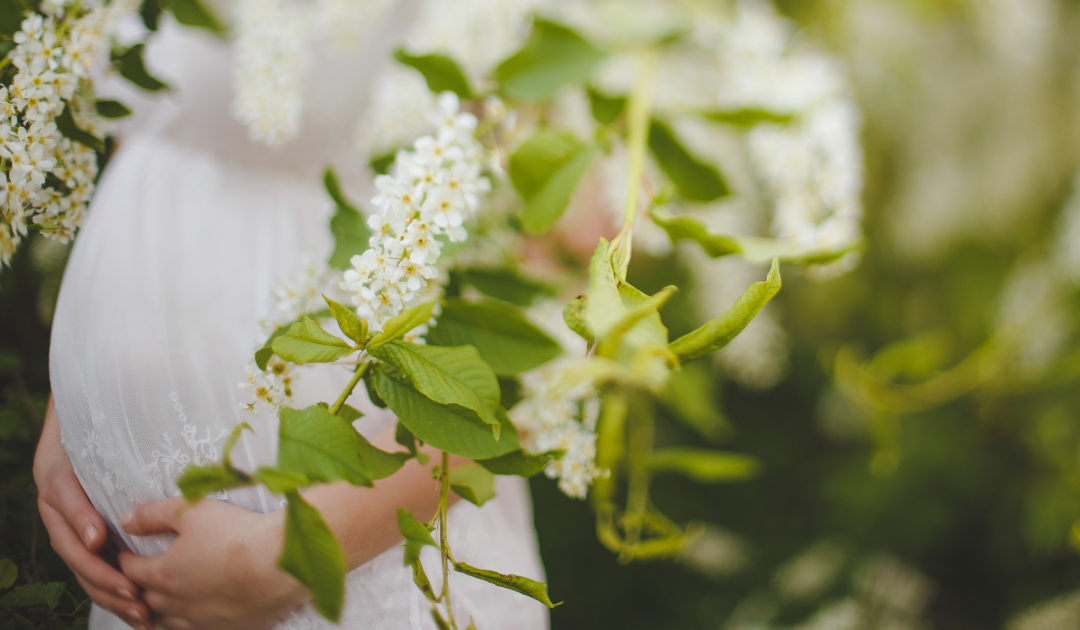Pregnancy is a whirlwind of emotions – excitement, anticipation, maybe even a little nervousness. But did you know that prenatal stress during pregnancy can impact your baby’s development?
While a little stress here and there is normal, long-term, unmanaged stress can have lasting effects on your child’s behavior down the line.
The good news is, by understanding the link between prenatal stress and child development, and by creating a calmer home environment, you can set your little one up for a healthy and happy start.
What are the effects of prenatal stress on child behavior?
Pregnancy is such a special time, but it’s also natural to feel some stress along the way. While a little stress here and there is totally normal, chronic stress can sometimes impact your baby’s development.
Here’s what some research suggests:
- Little Fussy Friends: Sometimes, babies who were exposed to prenatal stress might seem a bit more fussy. They might cry more easily and have a harder time calming themselves down. Imagine being a tiny person in a big world, and everything feels a little overwhelming!
- Attention Adventures: These little ones might find it tricky to focus on one thing for very long. They might be easily distracted and have trouble concentrating. Think of a butterfly flitting from flower to flower – that can be how their minds work sometimes!
- Busy Bodies: Sometimes, stress exposure in the womb can lead to increased activity levels. Your little one might have boundless energy and seem to be on the go all the time! They might also be more impulsive, wanting to do things right away.
- Feeling All the Feels: Just like adults, babies pick up on emotions. Prenatal stress can sometimes make it harder for children to manage their own feelings. They might have trouble forming attachments with caregivers, feel anxious or worried, or have a hard time calming down when they’re upset.
- Learning Along the Way: Some studies suggest that there might be a link between prenatal stress and problems with learning and memory. This is a complex area of research, and every child learns and develops at their own pace.
Remember, every child is unique!
These are just some possible effects, and it’s important not to worry if your little one doesn’t fit perfectly into any one category. If you have any concerns about your child’s development, the best thing to do is talk to your doctor. They can help you explore any questions you might have and offer support and guidance.
Can stress during pregnancy affect baby personality?
It’s true that chronic stress during pregnancy can play a role in shaping your baby’s personality as they develop. Imagine being a tiny person, snuggled up all cozy in your mom’s tummy, and suddenly there’s a lot of tension and worry.
It can be a little confusing! Here’s what some research suggests:
- Shy Little Sprout: Sometimes, babies who were exposed to prenatal stress might be a bit more on the shy side. They might take a little longer to warm up to new people and situations, preferring familiar faces and routines. This doesn’t mean they’re not social butterflies in the making, just that they take things at their own pace.
- Feeling the Worries: Just like adults, babies are sensitive to emotions. Prenatal stress can sometimes make little ones more prone to feeling anxious or worried. They might be more easily startled or clingy, seeking comfort from familiar caregivers.
- Taking a Backseat: In some cases, babies who experienced prenatal stress might be more likely to withdraw in social situations. They might seem less interested in interacting with others and prefer quiet playtime on their own.
It’s important to remember that every baby is unique!
These are just some possible effects, and there’s no need to worry if your little one doesn’t perfectly fit this description. Temperament plays a big role in personality development, and some babies are naturally more cautious or reserved than others.
The most important thing is to provide a loving and supportive environment where your child feels safe and secure. With lots of cuddles, playtime, and positive interactions, your little one will blossom and develop their own unique personality in their own sweet time. If you have any concerns about your child’s development, talking to your doctor is always a great first step.
Can crying and stress affect an unborn baby?
It’s okay to shed a tear (or ten) sometimes – pregnancy is a rollercoaster of emotions, after all! The occasional cry won’t harm your little one. But chronic stress, the kind that leaves you feeling constantly on edge, can potentially impact your baby’s development.
Here’s why: When you’re stressed, your body releases hormones like cortisol. These hormones travel through the placenta and can influence your baby’s developing nervous system.
Think of it like this – if you’re feeling tense and worried, your baby might pick up on those vibes too.
Here’s the good news: You have the power to manage your stress and create a calm, happy environment for your little one to thrive in. Deep breaths, relaxation techniques, and prioritizing activities that bring you joy can make a big difference.
Remember, don’t be afraid to ask for help!
Talking to your partner, a trusted friend, or a therapist can be a great way to manage stress and navigate the emotional ups and downs of pregnancy.
Can stress during pregnancy cause ADHD?
Can stress during pregnancy cause ADHD?
ADHD is a complex condition with many contributing factors, and prenatal stress is one piece of the puzzle that researchers are still exploring.
Here’s what we know:
- Stress and the Developing Brain: Chronic stress during pregnancy can bathe your baby’s developing nervous system in stress hormones. This can potentially impact the way their little brains are wired, and some studies suggest it might be linked to an increased risk of ADHD.
- Not a Guarantee: It’s important to remember that correlation doesn’t equal causation. Just because a baby is exposed to prenatal stress doesn’t mean they will definitely develop ADHD. There are many other factors at play.
- Symptoms to Watch For: If you’re concerned about your child’s development, keep an eye out for common ADHD symptoms like hyperactivity, impulsivity, and difficulty focusing. Early intervention can make a big difference.
The good news? You can help mitigate the effects of stress by creating a calm and nurturing environment for yourself and your baby. Here are some tips:
- Prioritize Self-Care: Make time for activities that help you de-stress and relax, like yoga, meditation, or spending time in nature.
- Healthy Habits: Eat a balanced diet, get enough sleep, and exercise regularly. Taking care of yourself physically can improve your emotional well-being.
- Talk to Your Doctor: If you’re feeling overwhelmed by stress, don’t hesitate to reach out for help. Your doctor can offer support and guidance.
Remember, the most important thing is to provide a loving and supportive environment for your child. With a healthy lifestyle and stress management techniques, you can give your baby the best possible start in life.
Creating a Calmer Home Environment
The good news is that you can mitigate the effects of prenatal stress by creating a calmer and more nurturing environment for yourself and your growing baby. Here are some tips:
- Prioritize Self-Care: Make time for activities that help you relax and de-stress, like yoga, meditation, spending time in nature, or getting a massage.
- Seek Support: Don’t be afraid to reach out to a therapist or counselor for help managing stress and anxiety.
- Healthy Habits: Eat a nutritious diet, get enough sleep, and exercise regularly. Taking care of yourself physically can improve your emotional well-being.
- Connect with Your Partner: Talk openly about your feelings and concerns. Having a supportive partner can make a big difference.
- Reduce Daily Stressors: Identify and address the things that are causing you the most stress, whether it’s work, finances, or relationships.
Remember, creating a calm and happy home is an ongoing process. By taking care of yourself and reducing stress, you can give your baby the best possible start in life.
Contact
New Mexico
Phone: (505) 910-4070
Fax: (505)-910-4587
Address
New Mexico: 10409 Montgomery PKWY NE #202b Albuquerque, NM 87111
Kansas: 8700 Monrovia
Suite 310
Lenexa KS 66215


